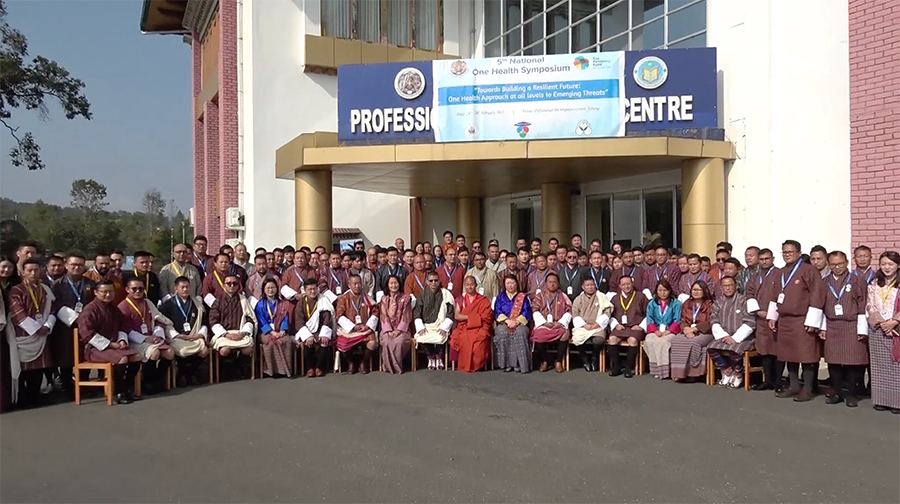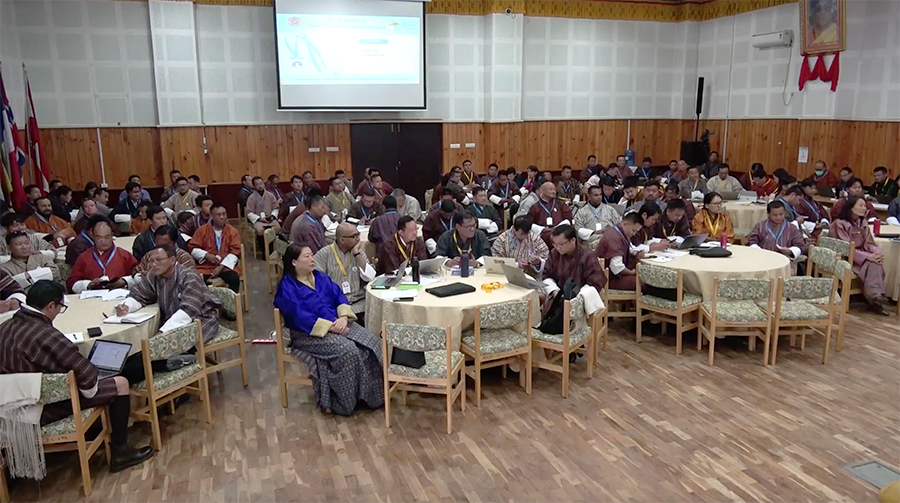 To address pressing health issues and emerging threats affecting people, animals, and the environment through a unified approach, the ‘Bhutan One Health’ symposium is underway in Tsirang. The symposium, which began yesterday, is an approach aimed at strengthening the country’s preparedness against future health threats by fostering collaboration among multiple sectors.
To address pressing health issues and emerging threats affecting people, animals, and the environment through a unified approach, the ‘Bhutan One Health’ symposium is underway in Tsirang. The symposium, which began yesterday, is an approach aimed at strengthening the country’s preparedness against future health threats by fostering collaboration among multiple sectors.
The symposium is themed ‘Building a Resilient Future: One Health Approaches at all levels to Emerging Threats’.
 More than 100 public and animal health experts, alongside officials including a few executives from the health ministry, the agriculture and livestock ministry, the energy and natural resources ministry, and local government leaders are attending the three-day symposium.
More than 100 public and animal health experts, alongside officials including a few executives from the health ministry, the agriculture and livestock ministry, the energy and natural resources ministry, and local government leaders are attending the three-day symposium.
Experts highlighted that most of emerging infectious diseases originate from animals.
Recognising this, officials from the health ministry said that adopting an integrated approach has become increasingly crucial to control disease outbreaks.
Moreover, the officials said that such multi-stakeholder symposium will help enhance preparedness against potential health threats such as Mpox.
The health secretary emphasised the importance of collaboration in responding to disease outbreaks in the country.
Pemba Wangchuk, Health Secretary said “Take rabies as an example, we often don’t know who is really responsible. Health officials consider it as their responsibility only when patients visit hospitals. However, since the disease originated from animals, many feel that veterinary officials are responsible for controlling the disease. So, moving forward, we must bridge these gaps and work together to combat diseases effectively.”
Ugyen Tshering, Deputy Chief Programme Officer of Department of Public Health said “We also want to see what are the current plans and mechanism, which has to be reviewed or updated. So, basically through such symposium we will be able to see our gaps and then we will be to really come up with some improvements, recommendations, and resolutions.”
The three-day conference includes scientific presentations, expert panel discussions, and interactive group works.
These sessions will explore critical health issues requiring joint action from multi-stakeholders.
Participants will also share knowledge, insights, and solutions to guide the ongoing revision of the Bhutan One Health Strategic Plan.
For the first time, the symposium is being held at the district level with local leaders from eight districts, making the conference inclusive.
Ugyen Tshering, the Deputy Chief Programme Officer said “With experience from the COVID-19 pandemic, it really shows that we really need to be unified and work collaboration approach and not only limited to the national level. So far, the One Health concept has been only at the national level and now we are trying to also go beyond national level and we are going to the field level. So, in doing so are also trying to take this One Health approach beyond just animal and human health.”
Health Secretary Pemba Wangchuk said “Local leaders should not assume that disease control is solely the responsibility of doctors and specialists. Instead you should actively find ways to support disease prevention and management in the communities. We must also provide capacity building training at the gewog levels to strengthen disease control efforts.”
The fourth edition of the One Health symposium was held in 2018. It could not be continued due to disruptions caused by the COVID-19 pandemic and funding limitations.
Pema Tshewang, Tsirang
Edited by Tshering Zam







